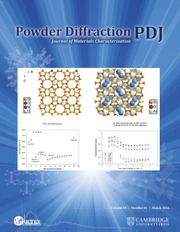The 25th International Congress on X-ray Optics and Microanalysis (ICXOM 25) was held from 5 to 9 August 2019 at The Westin Lombard Yorktown Center, Lombard IL (near Chicago), USA. The Congress was organized by scientists from the Clausthal University of Technology, the DESY, the Advanced Photon Source at Argonne National Laboratory (APS), and the University of Antwerp.
The ICXOM congresses are dedicated to new developments in Synchrotron instrumentation and X-ray based micro- and nano-analysis. In 2019, the ICXOM joined exceptionally well with the Denver X-ray Conference (DXC) 68th edition. The latter is dedicated to newest developments and innovation in laboratory XRD and XRF. A salient feature of DXC is that it includes the largest and most diverse exhibition of X-ray instrumentation. The participants were allowed and welcome to attend all ICXOM and DCX sessions, no matter for which conference they registered. The joint plenary session on Wednesday, featuring several outstanding speakers emphasized the integrative motive of the event.
More than 100 synchrotron (SR) users and beamline scientist from all over the world registered for the ICXOM 25. About 500 participants and vendors attended the joint event. The ICXOM 25 kicked off traditionally with a session on new developments in X-ray optics. Sophisticated improvements of nanofocusing optics were presented, e.g., the Aberration-Corrected Optics for Diffraction-Limited Nanofocusing and Multilayer Laue Lenses for nanometer-scale resolution. It was emphasized how these outstanding advancements of X-ray optics benefit users research. Experiments at the novel X-ray Free-Electron Lasers require novel optics, like Multi-beam Diffractive Optics. Those were addressed in the optics session. On Tuesday afternoon the participants were invited to an outing to the Advanced Photon Source (APS) at Argonne National Laboratory (ANL) and an on-site session “Advanced XRF and SR nanoprobes”. Representatives from different SR-facilities illustrated newest developments at their facility. After this session, participants could choose between nine different tours of the APS to get an insight on new set-ups and capacities at the different beamlines (Figure 1). The tour at the APS was very well received by the audience. On Wednesday, August 7, ICXOM and DXC had a joint plenary session on “New Approaches in Imaging” organized by the ICXOM. It served as the plenary opening session of the DXC. The attendees of both conferences enjoyed three outstanding invited presentations. The first was given by Benjamin Hornberger about the Lyncean Compact Light Source. An inverse Compton scattering X-ray source offering a brilliance comparable to SR sources. The second talk was given by Florian Meirer from the University of Utrecht about nanoscopic chemistry of catalysts and the third by Gayle Woloschak from Northwestern University about how the capability for imaging ever smaller objects like single cells benefit modern medicine (Figure 2). The more specialized ICXOM sessions on Wednesday afternoon and Thursday blended in seamlessly with other specialized DXC sessions. The classical ICXOM topics on new developments in optics, detectors, and instrumentation were extended to data analysis. The applications sessions focused on “functional materials”, “biological applications”, “the environment” (including the Mars Mission), and “cultural heritage”. Concluding the conference, the chair of the International Scientific and Advisory Committee, Koen Janssens, University of Antwerp, announced the next ICXOM to be at organized by scientists of the ESRF in Grenoble, France in 2021. The current COVID 19 situation may cause a shift from 2021 to a later date.

Figure 1. Participants of the outing to the APS.

Figure 2. Plenary session speakers and awardee from left to right: Benjamin Hornberger, Gayle Woloschak, Chev Noyan, Florian Meirer.
All participants were invited to contribute to the proceedings. However, only a small number accepted the invitation. We hope enthusiasm to contribute to a written conclusion of the ICXOM can be sparked in the editions to come. We thank all participants of the ICXOM 25, everybody who helped organizing the event and are looking forward to the upcoming ICXOM 26.





